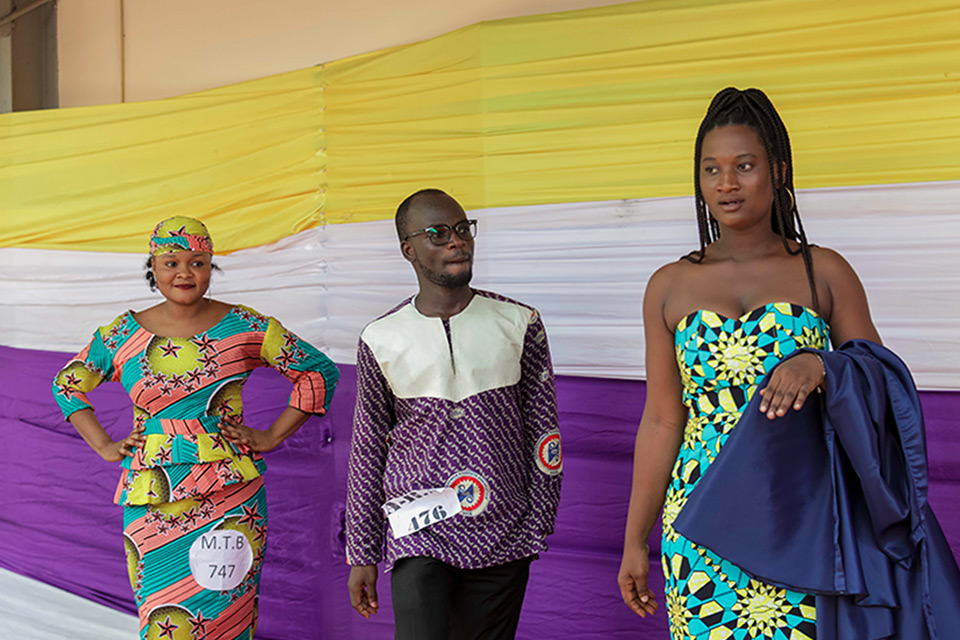DIHEE-UEW Hosts Retreat on Data Analysis and AI Tools

The Department of Integrated Home Economics Education (DIHEE) at the University of Education, Winneba (UEW) has organised a two-day on-campus academic retreat aimed at enhancing the research competencies of its faculty through training in quantitative data analysis and the application of artificial intelligence (AI) tools in academia.
The retreat, held under the theme “Strengthening Research through Data Analysis and AI Integration in Academia,” brought together faculty members for an intensive hands-on workshop led by two facilitators. The two-day training took place at the Centre for International Programmes (CIP) Conference Room at the Students Centre, North Campus, UEW, on Wednesday and Thursday, 4th – 5th June, 2025.

Prof. Peter Akayuure, a seasoned researcher, guided participants through data analysis techniques including the practical use of statistical tools in interpreting research data. He emphasised the need for researchers to ground their quantitative data analysis in clearly defined research objectives and appropriate statistical tools.
Prof. Akayuure noted that the essence of data analysis is to make sense of data in a manner that helps researchers draw valid conclusions. He cautioned against treating analysis as a mechanical exercise, urging participants to align their research questions, objectives and instruments with their analytical tools. “The goal is not just to crunch numbers but to arrive at meaningful, justifiable conclusions that reflect your objectives,” he stressed.
Addressing the importance of clarity in research design, Prof. Akayuure explained that the nature of the research problem should inform whether a study is descriptive, correlational, causal-comparative or experimental. He emphasised that the choice of statistical tools—be it frequency tables, percentages, means or inferential techniques—should be guided by the specific questions being asked.

Dr. Philip Siaw Kissi, an expert in educational technology followed with insightful sessions on the practical application of AI tools to enhance academic work, particularly in teaching, literature reviews and research writing. He pointed out the transformative role AI could play in the modern academic environment. Citing tools like ChatGPT and Gamma AI, he demonstrated how lecturers could generate course outlines, automate slide creation, streamline literature reviews and even draft academic articles with AI support.
“When the semester begins, we are often expected to submit course outlines and teaching materials almost immediately. With tools like ChatGPT, you can quickly generate structured content, including course objectives, weekly topics, recommended readings and even assessment formats. It is a major relief for lecturers managing multiple courses,” he noted.
Dr. Kissi underscored that while many educators use ChatGPT merely for definitions or quick summaries, the platform’s capabilities extend much deeper. From identifying research gaps to constructing literature matrices for journal publications, AI tools, when used effectively, can reduce the burden of repetitive academic tasks. He, however, was quick to issue a caveat: “Not everything AI generates is accurate. You must be knowledgeable in your subject area to verify and refine the content.”

Speaking at the opening ceremony, Dr. Rosemary Quarcoo, Acting Head of DIHEE, noted that although the retreat was originally scheduled to take place off-campus, prevailing circumstances necessitated its relocation. Nevertheless, she underscored the department’s commitment to academic excellence and faculty development.
“We are in a world of rapidly changing technologies. As educators and disseminators of knowledge, it is imperative that we stay ahead of these changes. This retreat is our way of equipping ourselves with new knowledge and skills to better serve in both our teaching and research roles,” she remarked.

Dr. Rosemary Quarcoo further encouraged participants to make the most of the sessions, which included group-based analyses of two relevant departmental research projects: “Waste Management Practices by Small-Scale Garment Producers” and “Hazard Analysis and Critical Control Points (HACCP) Awareness and Application for Restaurants/Food Joints.” She expressed optimism that the retreat would not only deepen participants' understanding of data interpretation but also foster collaborative research efforts within the department.
Participants were tasked with refining their studies, guided by facilitators and supported by research assistants who gathered relevant literature to enhance the research outcomes.

Chairing the event, Dr. Elizabeth Lani Ashong lauded the department's initiative, highlighting the critical role of research in academic advancement.
“To grow as lecturers, we must be well-grounded researchers. Getting our data is one thing, but being able to analyse and interpret them correctly is what gives value to our findings. This retreat is equipping us with exactly that,” she stated.
Dr. Elizabeth Ashong acknowledged the collaborative spirit and active participation of faculty which she credited for the success of the retreat. She also extended appreciation to the facilitators for their rich insights and practical guidance throughout the workshop.
Participants expressed satisfaction with the knowledge gained and pledged to integrate the new tools and methodologies into their ongoing academic and research work. The initiative marks another milestone in DIHEE’s commitment to academic excellence, innovation, and capacity building.















